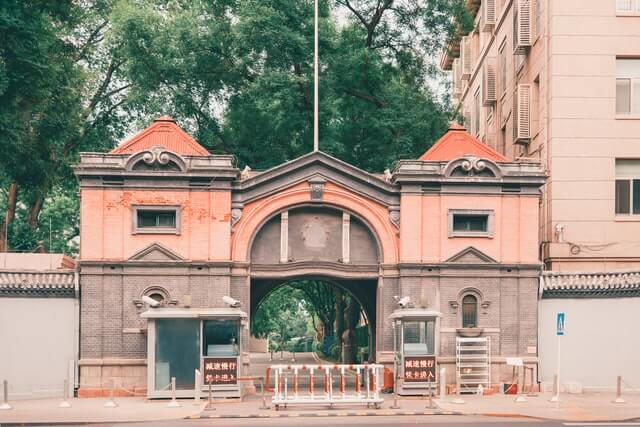Sue a Company in China: You May Consider Arbitration to Claim Against Chinese Suppliers
As we said before, you can turn to Chinese courts for disputes with Chinese suppliers. Because it costs less to sue in Chinese courts. Moreover, Chinese courts are trustworthy for the enforcement of commercial contracts. For more information, you can read Why Can You Turn To Chinese Courts for Disputes With Chinese Suppliers?
In fact, if you need to settle disputes in China, China’s arbitration is also a good option, even better than litigation.
1. Advantage A: arbitration takes less time than litigation
Arbitration takes 3-6 months or less, while litigation takes 9-18 months or more.
In China, in recent years, arbitration takes much less time in case hearing than litigation.
The main reason is that most Chinese courts are now plagued by litigation explosions.
Most Chinese suppliers are located in China’s economically developed regions, and the courts in these regions are most severely attacked by the litigation explosion.
Courts in these regions really do not have sufficient resources to hear cases and render judgments in a timely manner. This has led to the extension of the time limit for you to get the judgment from the usual 3-6 months to 9-18 months.
For foreign-related cases, no law clearly specifies the trial period of the court, so you may wait for an even longer time for the judgment.
Even if you get the first-instance judgment, the other party may appeal. This will then double the time.
By comparison, arbitration is much quicker. You can usually get the arbitral award in 3-6 months, as Chinese arbitration institutions move faster given they are exempt from litigation explosion.
Besides, neither you nor the other party can appeal the arbitral award. This means that once you get an arbitral award in your favor, you can immediately request the other party to enforce the award.
2. Advantage B: arbitrators understand business better than judges
Generally, judges tend to apply the law strictly. Therefore, if the parties do not agree on the terms of the transaction or the agreement is unclear, the judge may not try to explore the authentic agreement (genuine intention) of the parties as much as possible, but prefer to adopt the terms of the transaction stipulated by the law; even though the Chinese law clearly stipulates that when judging the parties’ terms of the transaction, if the parties have agreed thereupon, such agreed terms shall prevail.
The arbitrator is more concerned about the agreement of the parties. Most arbitrators are familiar with commercial transactions, so even if the parties do not agree on the terms of the transaction or the agreement is unclear, the arbitrator can understand the actual agreement through the hearing, and then make a ruling according to the agreement. In contrast, most Chinese judges have been admitted to the court since graduating from law school and have no other professional experiences, so they are not familiar with various commercial transactions.
In addition, the workload of Chinese judges is extremely heavy, which also causes them to lack the energy to fully understand the parties’ transactions, and therefore choose to strictly apply the law, which is the most time-saving way and least likely to be accused.
3. Disadvantages: arbitration costs more than litigation
For the court costs charged by Chinese courts, generally speaking, if you claim USD 10,000, the court cost is USD 200; if you claim USD 50,000, the court cost is USD 950; if you claim USD 100,000, the court cost is USD 1,600.
Each Chinese arbitration institution has its own rate table, for example:
China International Economic and Trade Arbitration Commission (CIETAC, the most well-known arbitration institution in China): if you claim USD 10,000, the arbitration fee is USD 3,000; if you claim USD 50,000, the arbitration fee is USD 3,500; if you claim USD 100,000, the arbitration fee is USD 5,500.
Beijing Arbitration Commission (BAC, Top 2 arbitration institution in China): if you claim USD 10,000, the arbitration fee is USD 2,600; if you claim USD 50,000, the arbitration fee is USD 3,000; if you claim USD 100,000, the arbitration fee is USD 4,300.
Guangzhou Arbitration Commission (GZAC in Guangdong Province, an area where most of the Chinese suppliers are located): if you claim USD 10,000, the arbitration fee is USD 630; if you claim USD 50,000, the arbitration fee is USD 2,000; if you claim USD 100,000, the arbitration fee is USD 3,000.
If you are the one initiating a lawsuit or arbitration, you will need to pay the court costs or arbitration fees first. After you get a winning award, the losing party will then bear the court costs or arbitration fees. Therefore, the fees you pay first will eventually be refunded as long as you win the case.
Do you need support in cross-border trade and debt collection? CJO Global's team can provide you with China-related cross-border trade risk management and debt collection services, including: (1) Trade Dispute Resolution (2) Debt Collection (3) Judgments and Awards Collection (4) Anti-Counterfeiting & IP Protection (5) Company Verification and Due Diligence (6) Trade Contract Drafting and Review If you need our services, or if you wish to share your story, you can contact our Client Manager: Susan Li (susan.li@yuanddu.com). If you want to know more about CJO Global, please click here. If you want to know more about CJO Global services, please click here. If you wish to read more CJO Global posts, please click here.

Photo by zhang kaiyv on Unsplash







